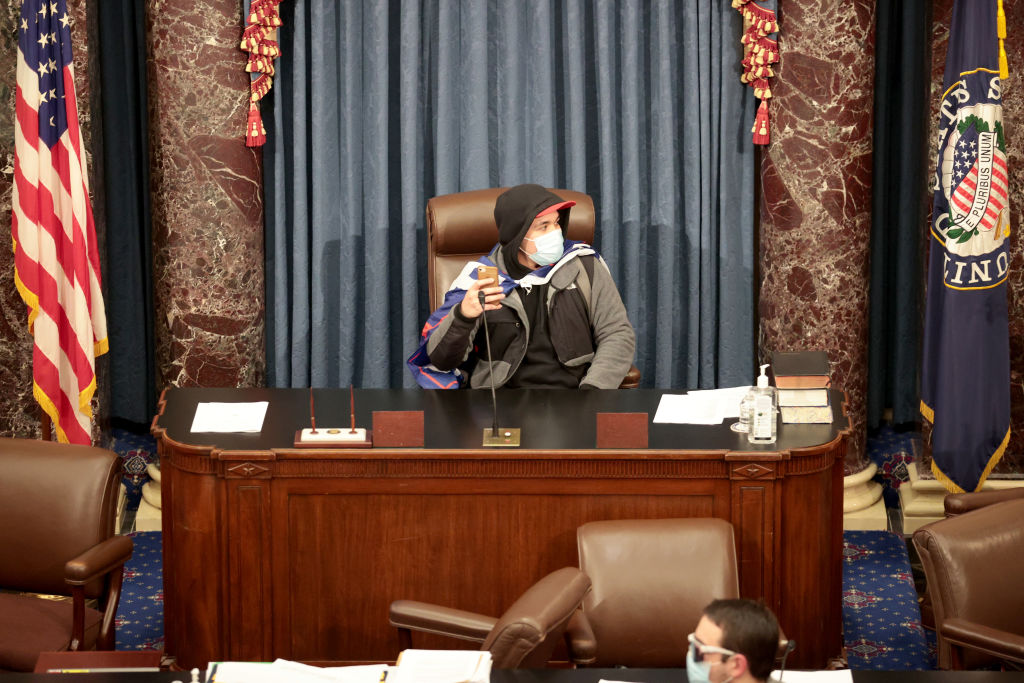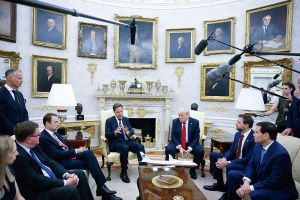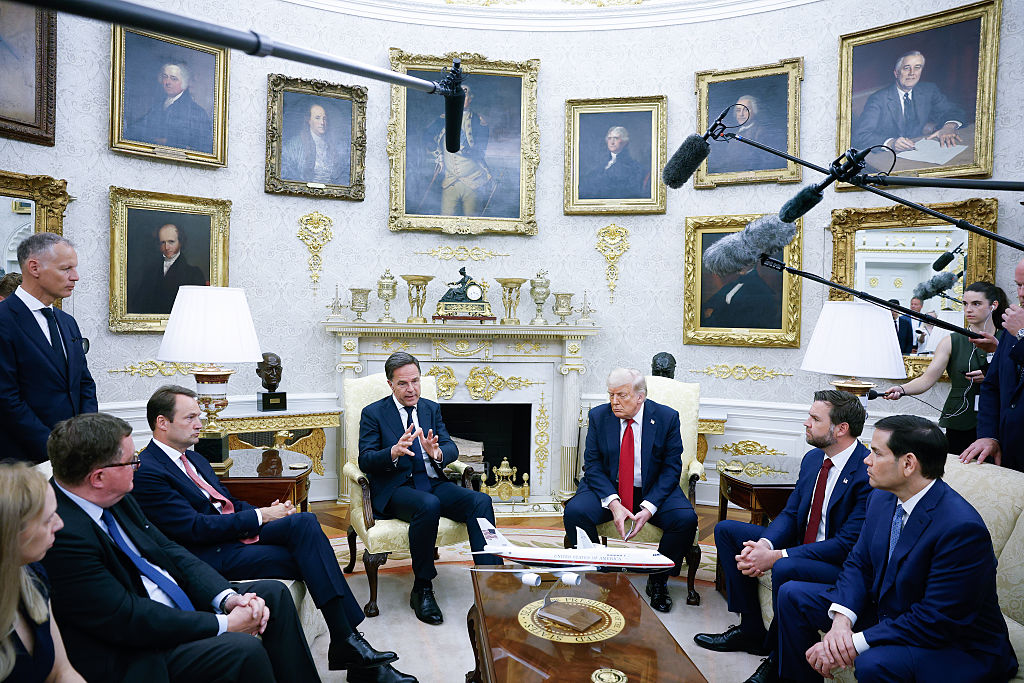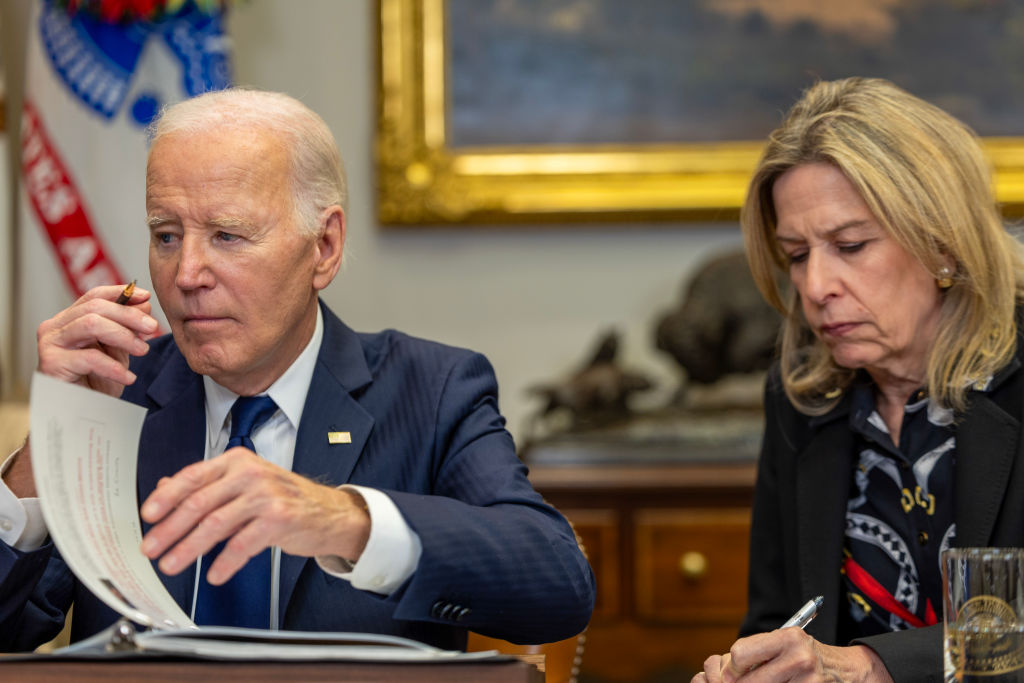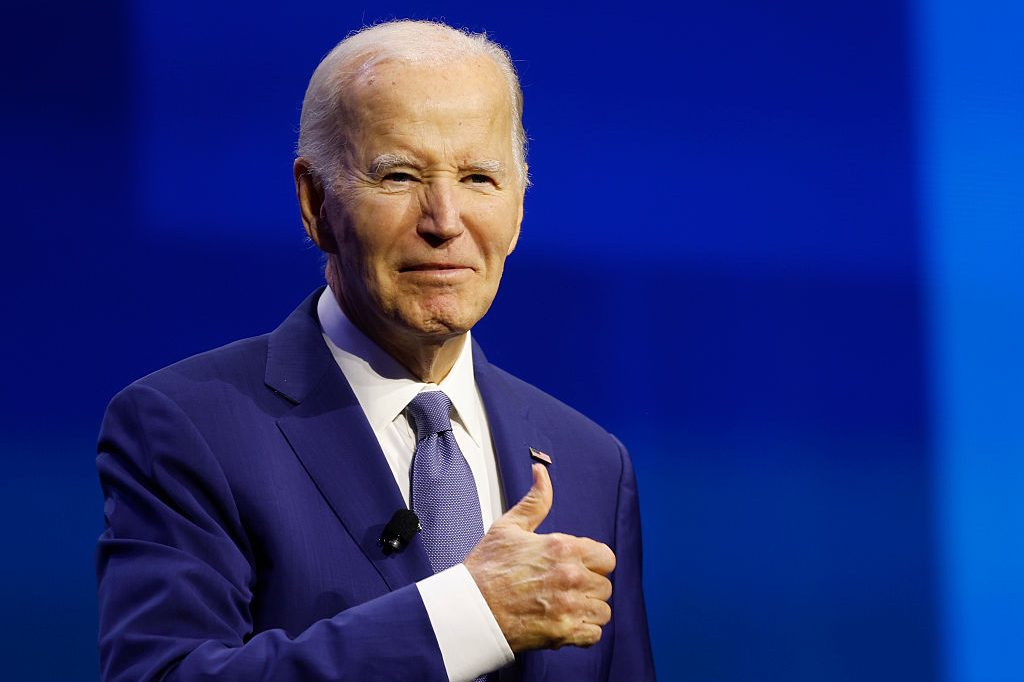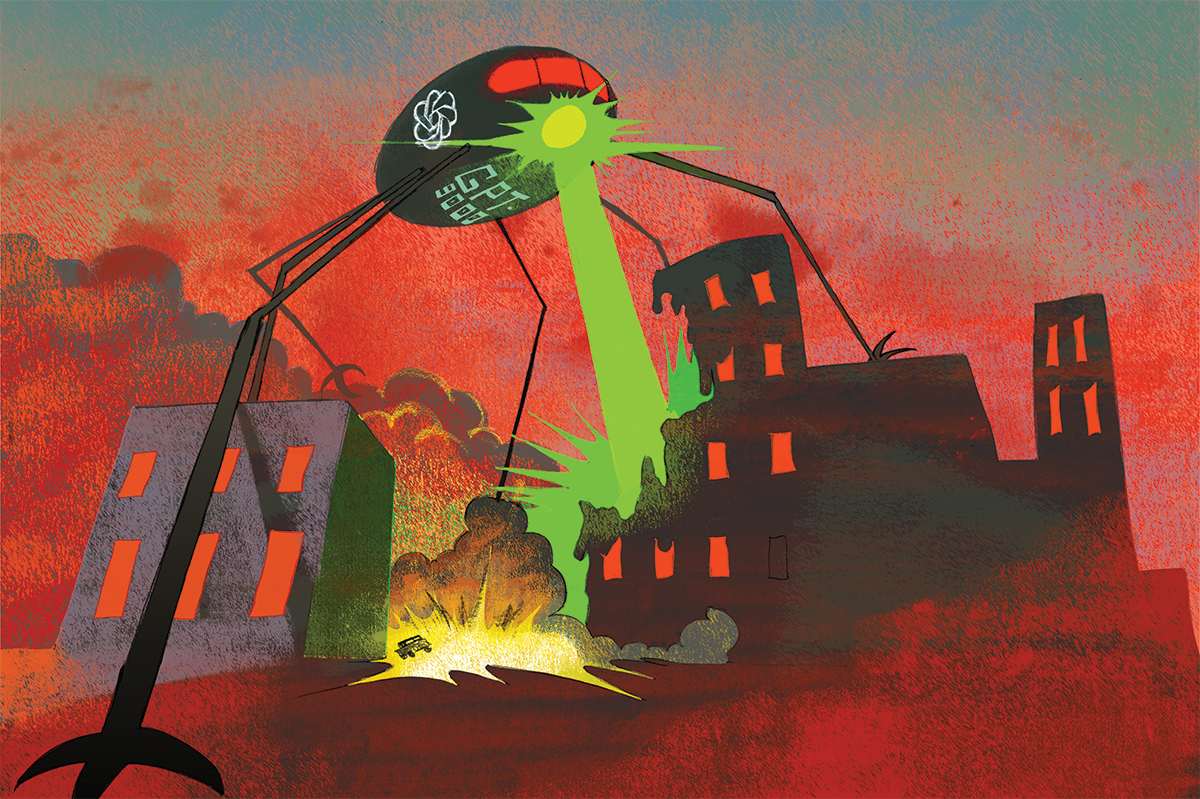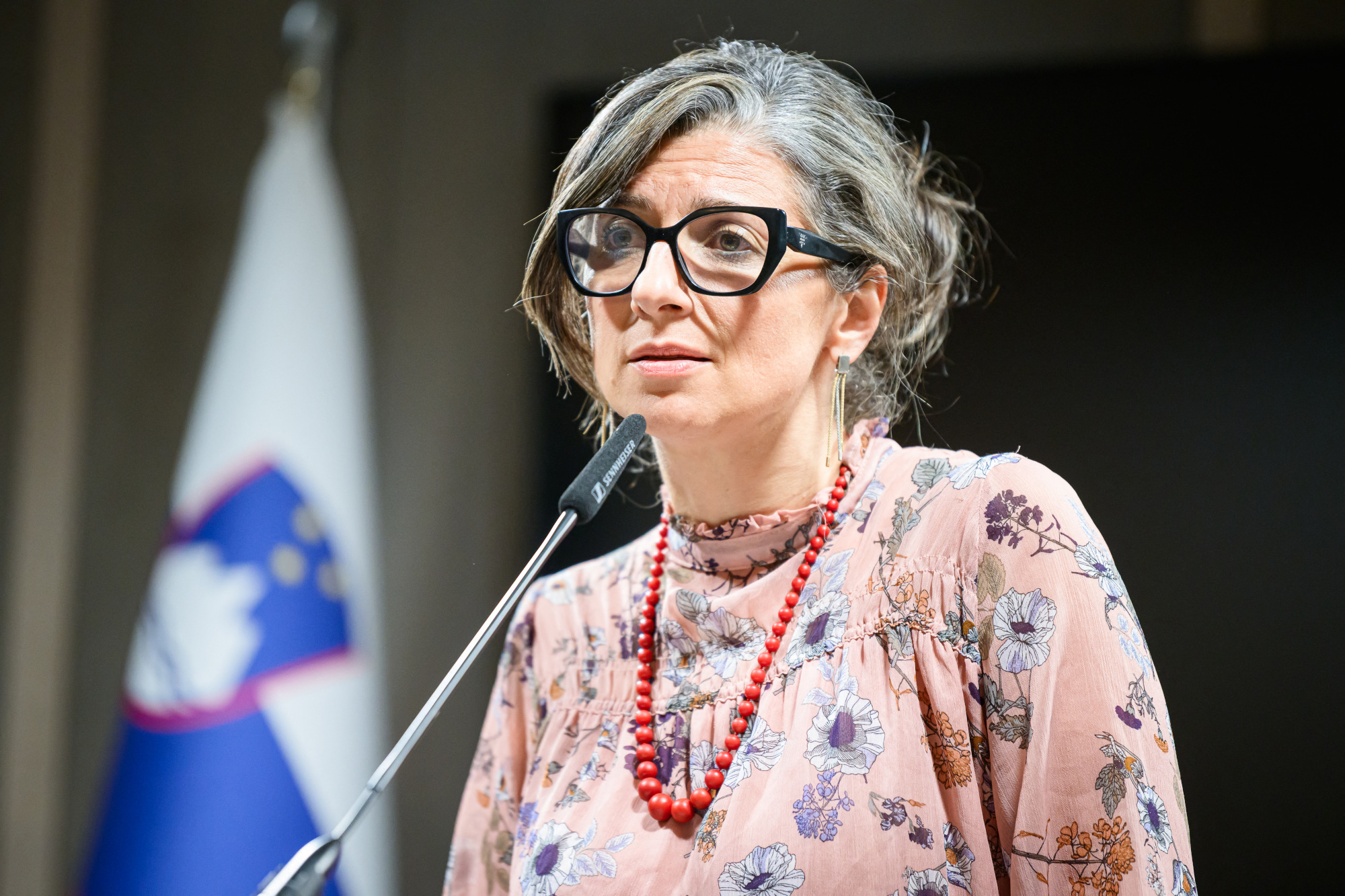When a violent mob broke into the Capitol building, they did more than breach the barriers of House and Senate chambers. They breached the barriers of our Constitution and the Republic for which it stands.
The scale and symbolic significance of this attack are new and profoundly troubling. But it is also the culmination of several disturbing trends. For months now, we have witnessed a degradation of public order — mobs roaming city streets, unpunished; an effort to take over and firebomb a federal courthouse in Portland, unpunished; delegates attacked on the streets of Washington after the Republican convention, unpunished. And now this, far worse than anything that came before.
One photograph captures this appalling collapse of law and constitutional order. It shows a thug in the Senate chamber, sitting in the chair where, only a few hours earlier, the Vice President of the United States was presiding over the acceptance of electoral votes, confirming Joe Biden’s election as president. That image carried a message. For a moment at least, the rioting mob was in charge.
That cannot stand.
As the rioters and thugs occupied the Capitol, as our nation cried out for the calm voice of legitimate authority, President Trump said nothing for hours beyond an anodyne tweet (sent at 1:38 p.m.), ‘Please support our Capitol Police and Law Enforcement. They are truly on the side of our Country. Stay peaceful!’ That wasn’t enough. What was needed was a blunt condemnation of violent protests, many of whom were Trump loyalists. The President hesitated to issue it. Later in the afternoon, he stood before the cameras and urged supporters to ‘go home’. But he added, once again, that the election had been ‘stolen’.
In days to come, there will be serious questions about why police failed to anticipate, prepare for, and stop this assault. There will be hard questions about President Trump’s role in calling the November election dishonest, fueling anger among his supporters, and effectively labeling Biden’s victory as illegitimate. First, though, we need to restore order on Capitol Hill and, beyond it, across Washington.
We rightly see this effort to seize control of the Capitol as anti-democratic, as an embryonic and inchoate coup attempt. Those who stormed the Capitol don’t see themselves that way. As they see it, they are not trying to launch a coup; they are patriots, trying to prevent one. Of course, some were anarchists and provocateurs, whose only aim was violent disruption. We’ll learn a lot more about that composition in days to come.
Right now, it appears that many Trump supporters who came to Washington saw themselves as embattled defenders of democracy, as outsiders trying to prevent powerful, entrench insiders from ‘stealing’ the election. For two months now, President Trump has been the bullhorn voice of that resistance.
The term ‘resistance’ is worth emphasizing. That pernicious term, now in common use, undermines our democracy. For the past four years, Democratic activists have framed their opposition to Donald Trump’s presidency as ‘resistance’. They have tried repeatedly to remove him from the office to which he was duly elected. Trump’s supporters say, quite openly, that ‘if they can do it, so can we.’ And now some of them have tried.
Once they have been defeated and Biden’s election confirmed, we need to begin restoring the terms of political competition within a democracy. As part of a broader effort to restore law, order, and traditional constitutional procedures, we need to replace ‘resistance’ with ‘loyal opposition’.
***
Get a digital subscription to The Spectator.
Try a month free, then just $3.99 a month
***
After we restore order in the Capitol building and on the streets of Washington, we need to restore order in the country itself. If our democracy is to endure, that order cannot be a fundamentally repressive one. Of course, we need police forces to cope with rioting. Of course, we need punishment for those who threaten and use force against fellow Americans. That punishment is the only way to deter still more violence. It must be applied with a firm, even hand.
But much as public order requires police and punishment, it cannot rely on external enforcement alone. It requires public restraint, exemplified by civic leaders and elected officials. We need to stop shouting each other down, smashing store windows, and painting graffiti on the houses of political opponents. If one side does it, the other will, too. That’s why it is crucial for political leaders, beginning with the President, to call out violence on ‘their own side’.
Most of all, we need to remind ourselves that our democratic government is still an experiment, and sometimes a fragile one. We need to remind ourselves of the question Benjamin Franklin was asked when he left the Constitutional Convention. A woman waiting outside the closed chamber asked him, ‘Do we have a Republic or a Monarchy?’ Today, her question would be ‘Do we have a Republic or a Dictatorship?’ What would not change is Franklin’s wise answer: ‘A Republic, if you can keep it.’
Charles Lipson is the Peter B. Ritzma Professor of Political Science Emeritus at the University of Chicago, where he founded the Program on International Politics, Economics and Security.



